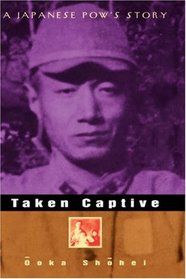Search -
Taken Captive : A Japanese POW's Story
Taken Captive A Japanese POW's Story
Author:
"I do not know whether I dozed off or passed out, but the next thing I remember is gradually becoming aware of a blunt object striking my body over and over. Just as I realized it was a boot kicking me in the side, I felt my arm being grabbed roughly, and I returned to full consciousness. "One GI had hold of my right arm, and another had his... more »
Author:
"I do not know whether I dozed off or passed out, but the next thing I remember is gradually becoming aware of a blunt object striking my body over and over. Just as I realized it was a boot kicking me in the side, I felt my arm being grabbed roughly, and I returned to full consciousness. "One GI had hold of my right arm, and another had his... more »
ISBN-13: 9780471142850
ISBN-10: 0471142859
Publication Date: 4/3/1996
Pages: 330
Rating: ?
ISBN-10: 0471142859
Publication Date: 4/3/1996
Pages: 330
Rating: ?
0 stars, based on 0 rating
Genres:
- Biographies & Memoirs >> Community & Culture >> Japanese
- Biographies & Memoirs >> Historical >> Holocaust
- Biographies & Memoirs >> Leaders & Notable People >> Military >> General
- Biographies & Memoirs >> Professionals & Academics >> Military & Spies
- History >> Military >> World War II >> General




